This lake looks as big as an ocean. When you look out over the water or walk along one of the sandy beaches, you often forget that it is a freshwater lake and not an ocean. The water is very clear. On the shore, you can see all the way to the bottom. As far as you can see, the shores are green, lushly forested and seemingly undeveloped. Lake Malawi is 50 times larger than Lake Constance and outwardly appears completely unpolluted. The people here live from fishing and selling at the local markets. There is hardly any shipping traffic, no industrial plants on the shore and no construction sins on land.
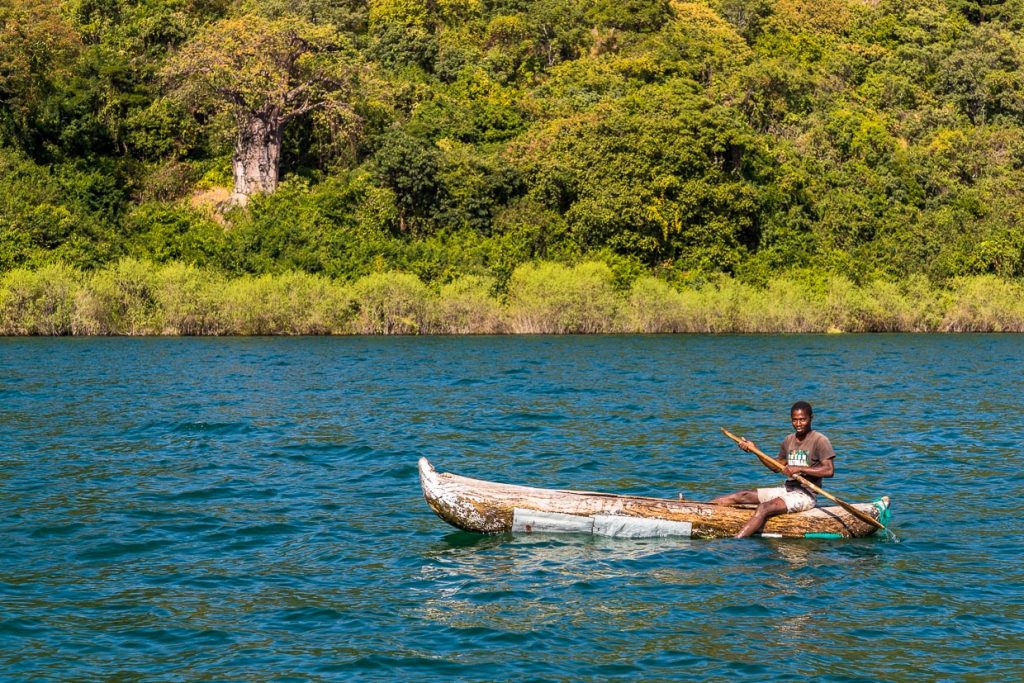
In Lake Malawi National Park
Tourism in Malawi has developed late compared to better known African destinations such as Tanzania, Kenya or South Africa. The country has few natural resources. This protects nature from destruction, but makes it difficult to fight poverty in the country. Emerging tourism offers an opportunity. The government and many actors in the communities have recognized that Malawi’s wealth lies in its intact nature and its unspoiled nature. This must be preserved and lessons learned from the mistakes of neighboring countries.
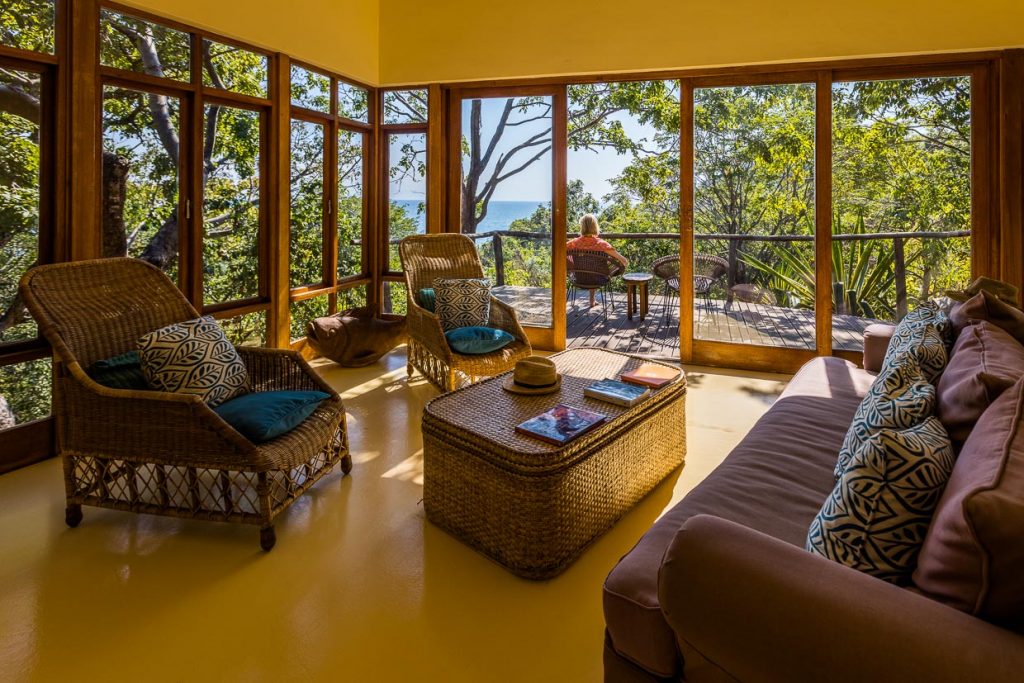
Lake Malawi National Park was established on the southern shore of the lake near Monkey Bay as early as 1980. It is the first freshwater and underwater national park in Africa. Since 1984, the area has also been on the UNESCO World Heritage List. At Cape Maclear on the southern tip of the lake, in the middle of the national park, is Pumulani Lodge. The facility has ten detached houses built into the bluff. Almost all have terraces facing the lake. Boardwalks connect the houses to the main house and pool. In addition to spectacular views of the lake, Pumulani Lodge offers water sports such as surfing, snorkeling, kayaking, and daily excursions out on the lake with a skipper.
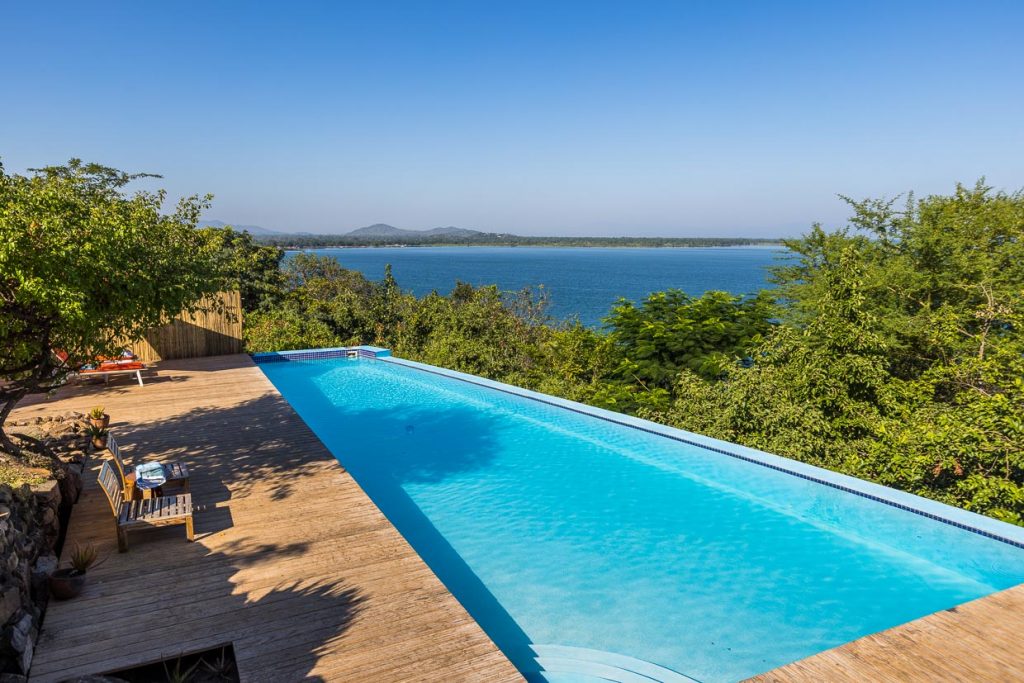
Forest and water
Every day, Skipper Black takes guests out on the lake. The small motorboat launches from the hotel’s own beach. Pumulani Lodge is located in the national park and it is not far to the bald eagles’ nesting sites. From the water, the individual houses of Pumulani Lodge built into the hillside can be seen.
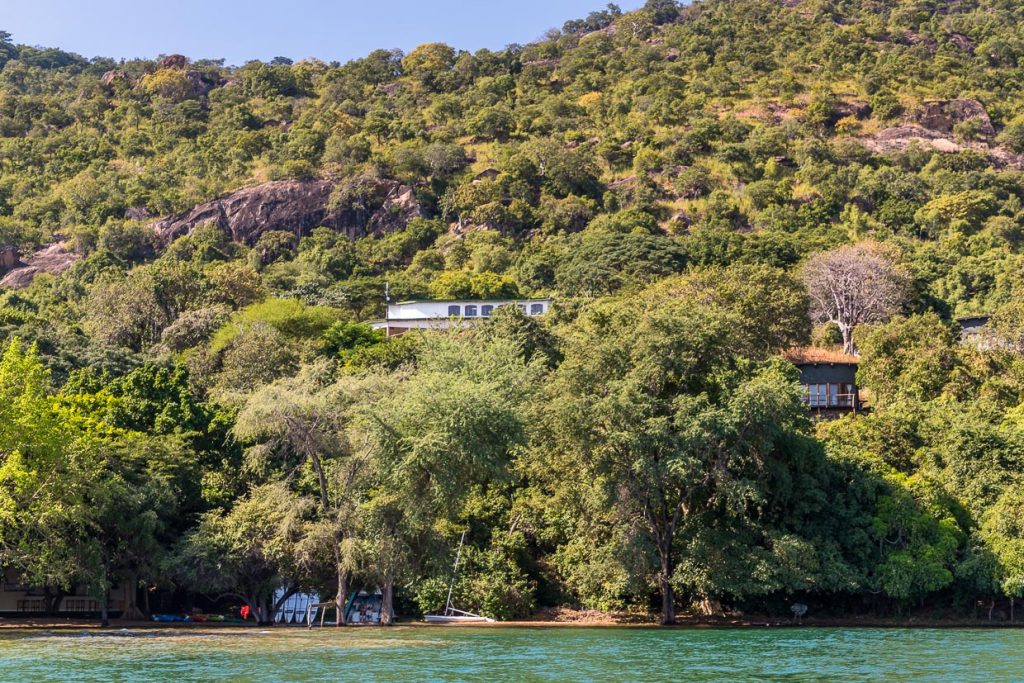
Monkeys shimmy through the trees. In the inaccessible terrain of the national park there are also the mighty baobab trees. After a short time the boat passes a first village. Even from the water, the importance of the lake for its inhabitants becomes clear. The people live from fishing. Small fishing boats bobble on the water. Fragile-looking wooden racks for drying fish line the beach.
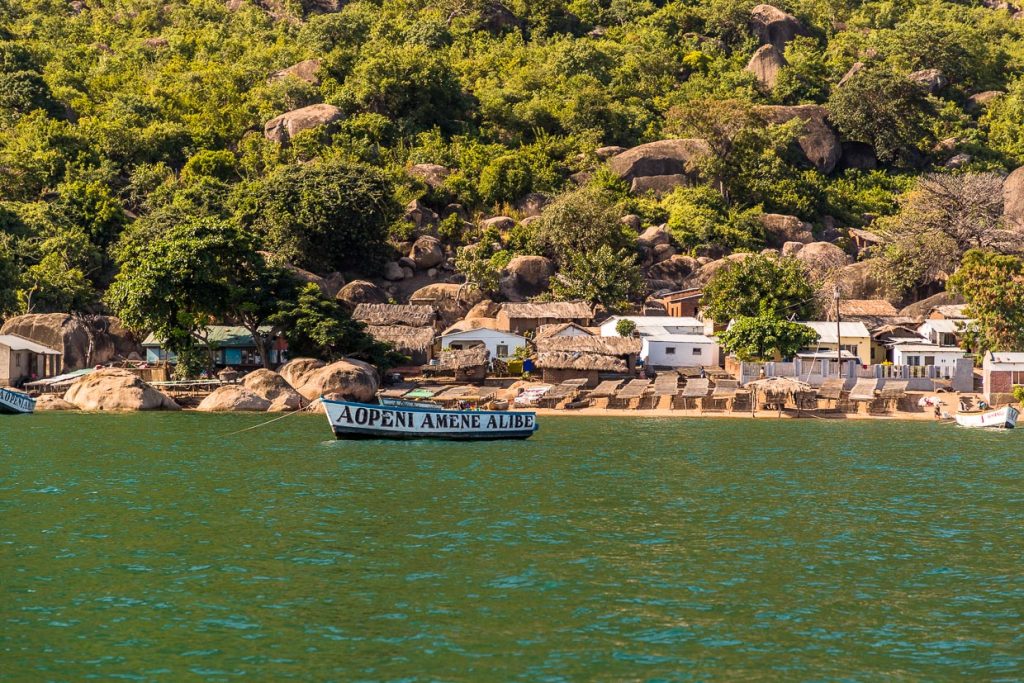
On the way to the bald eagle nesting grounds, Skipper Black buys some small tilapia from a fisherman right out of his dugout canoe. The fish serve as bait for the bald eagles. Bird life at the lake and its only outlet, the Shire River, is very diverse. Over 400 different species of birds have been documented, including cormorants, herons and hammerheads.
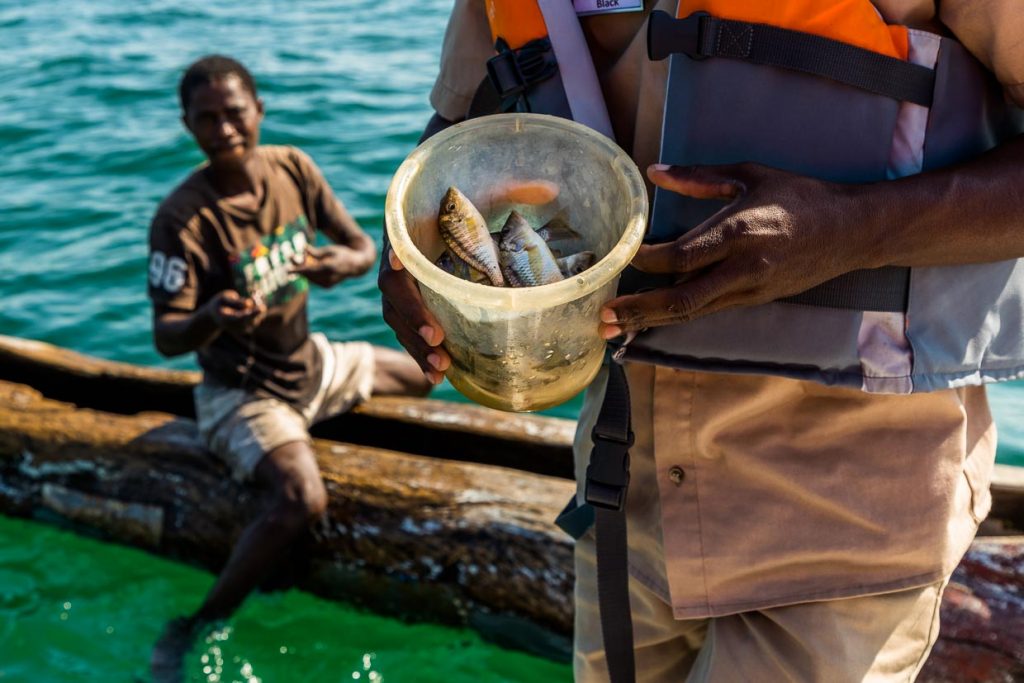
White-tailed eagles need large, forested lake or riverine landscapes. Lake Malawi is therefore an ideal territory for this majestic bird of prey. Bald eagles raise their young together and stay together for life. Skipper Black has given the eagle pairs names. They answer to the names of politicians and are called Obama and Michelle, Mandela or John Chilembwe, a missionary and national hero in Malawi. When Skipper Black calls the animals, they rise from their lookout trees on the shore and sail in gracefully, then make a final tight turn to swoop down on the fish in the water.
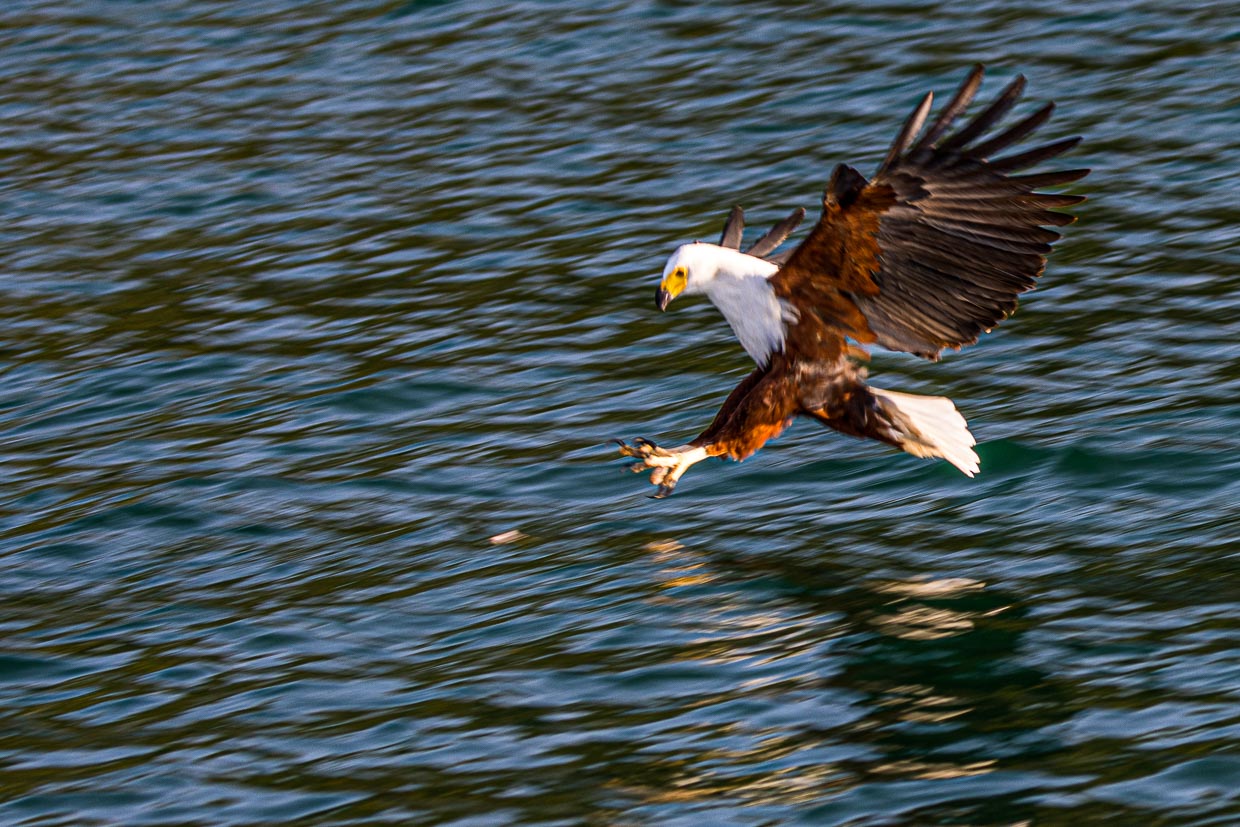
Sunrise at Makokola Retreat
At the southern end of Lake Malawi, where the Upper Shire flows into Lake Malombe, lies Mangochi. The town, which was called Fort Johnston during the British colonial period, is a vacation region with hotels in all price categories, many water sports facilities and wide, white sandy beaches. Day trips to the nearby Liwonde National Park can be made from here.
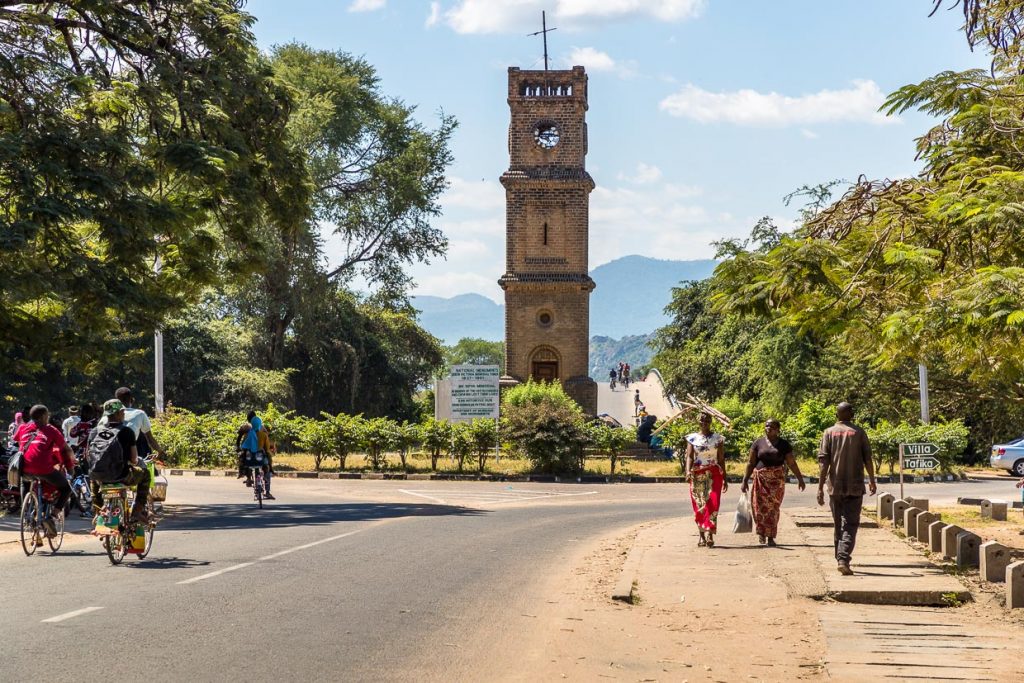
The Makokola Retreat blends unobtrusively into the riverside landscape. The restaurant and bar are spacious, open wooden buildings overlooking the beach and lake. The guest rooms are single-story, in the second row. Palm trees and large deciduous trees provide natural shade. Walks to the beach, pool, bar and restaurant are short.
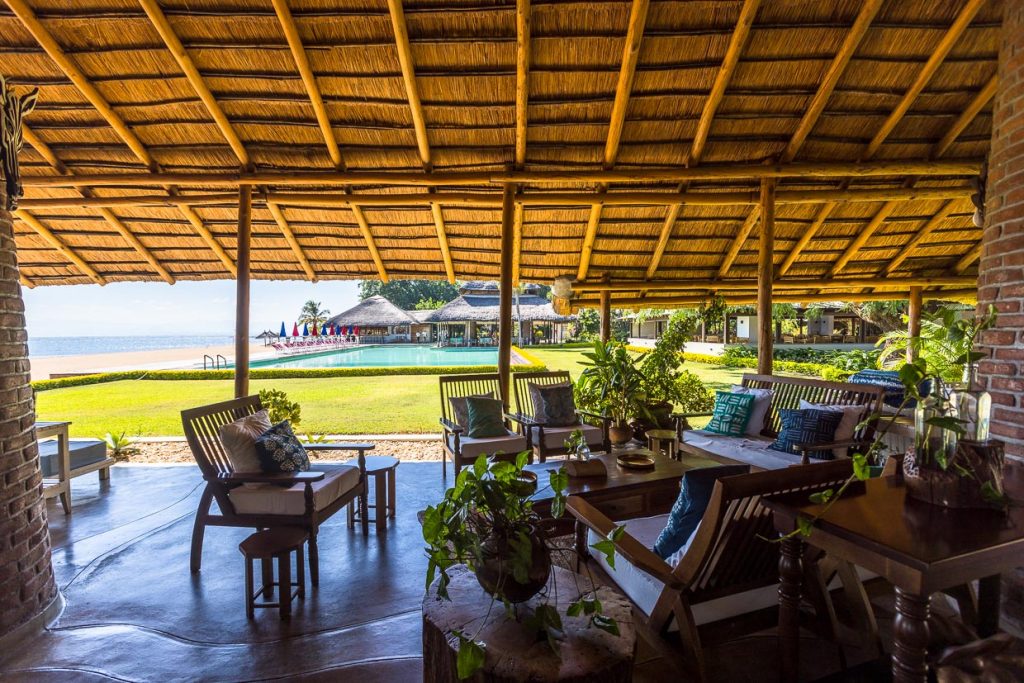
In the lobby of Hotel Makokola, a Ngnoi warrior welcomes guests. He was the last chief to rebel against the British occupation. The man-sized carving is by a well-known artist from nearby Moa Mission, a Scottish mission station in the mountains that takes special care to preserve Malawian culture.
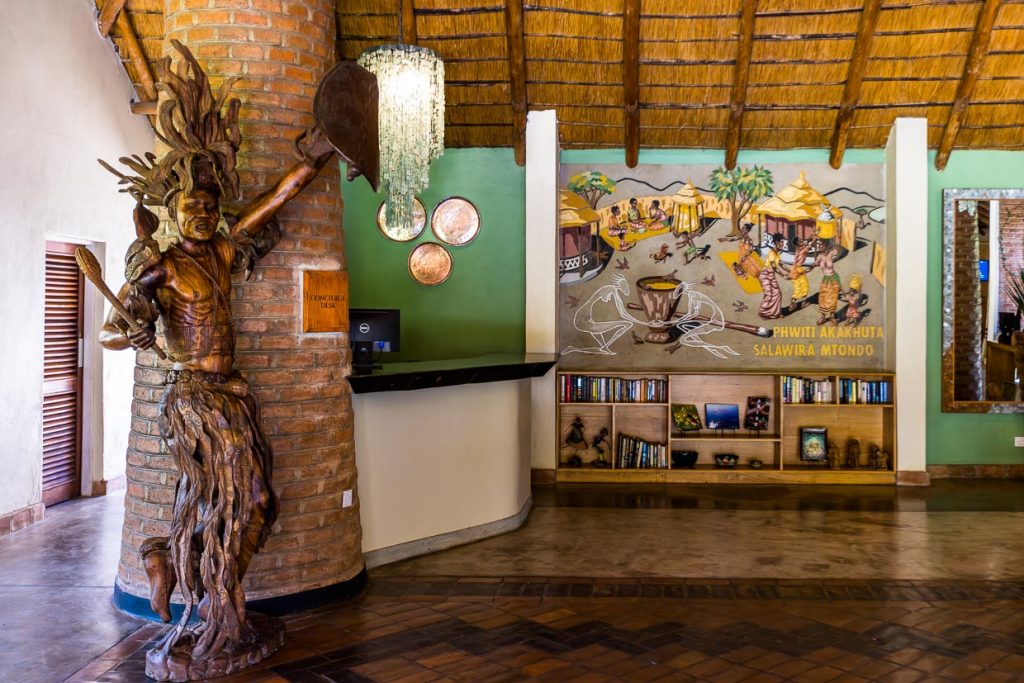
A large mural depicts the customs of Malawian hospitality. When a guest arrives in a village, the first thing that is done is to take away his or her burdens. For the guests there is an especially good meal. Thus, a boy is immediately sent to catch a rooster so that there will be a rich meal. Also the white corn for the nation dish Nsima is already crushed. Around the big mortar float the spirits of the ancestors. It is a beautiful welcome picture that reflects one’s own experience with the friendliness of the people in Malawi.
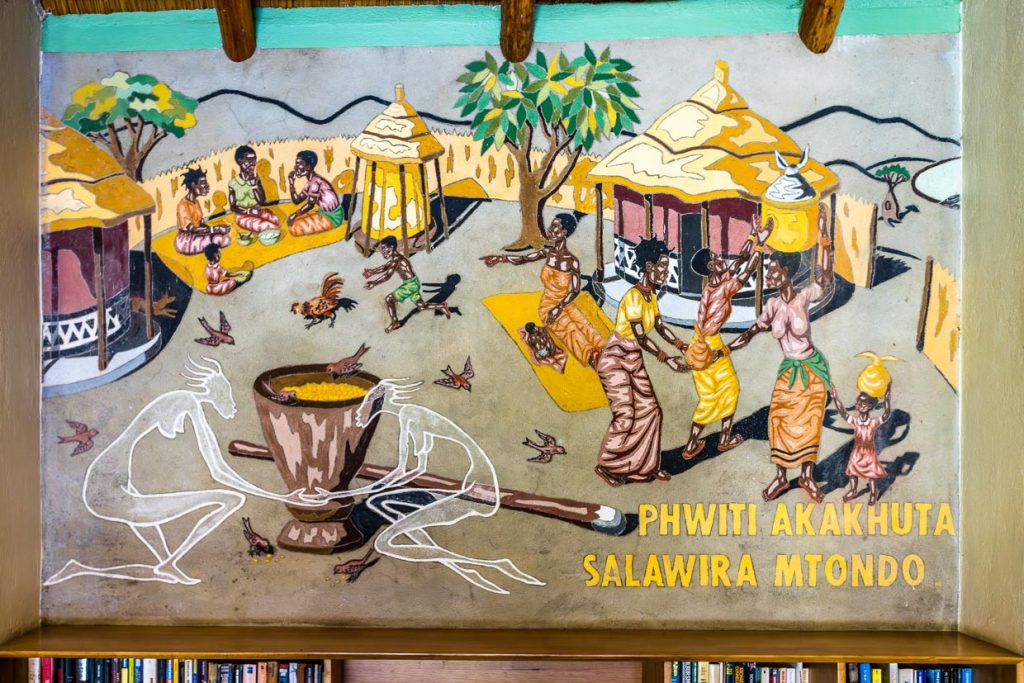
Early risers are rewarded with a beautiful sunrise at Makokola Retreat. Fishermen are out in small rowboats or in the traditional dugout canoes. They go out on the lake up to five times a day.
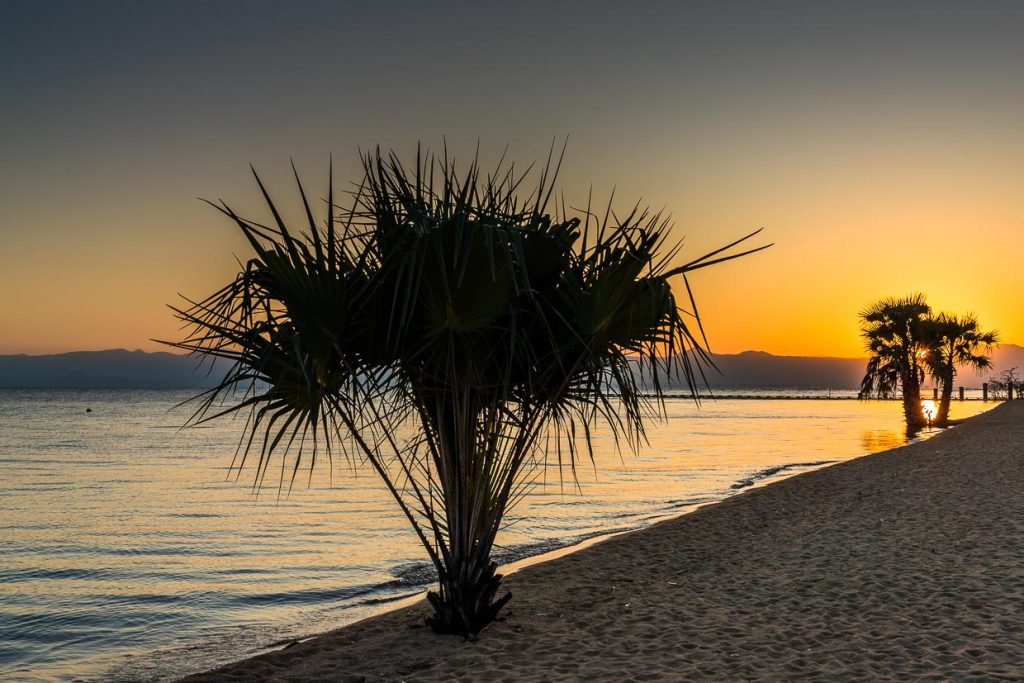
More information about a stay at Makokola Retreat near Mangochi and the recreational opportunities at Lake Malawi as well as about Pumulani Lodge in Lake Malawi National Park can be found on the hotels’ websites. The Ministry of Tourism of Malawi also provides detailed information about Lake Malawi and its islands.
The research trip was supported in Malawi by the Ministry of Tourism

